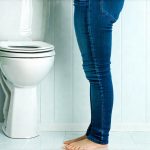Experiencing the urge to urinate shortly after emptying your bladder can be unsettling, and understandably prompts questions about what’s going on within your body. It’s a common phenomenon that many people experience at some point in their lives, but frequent occurrences warrant attention. This isn’t necessarily indicative of a serious medical condition, but understanding the potential causes and when to seek professional guidance is crucial for maintaining overall health and wellbeing. The sensation can range from a mild feeling of incomplete emptying to a strong, urgent need to revisit the restroom almost immediately after having seemingly finished.
The human urinary system is complex, involving kidneys, ureters, bladder, and urethra, all working in concert. Disruptions within any part of this system – or influences external to it, like fluid intake and neurological factors – can contribute to these repeated trips to the bathroom. It’s important to differentiate between occasional instances, which are often normal, and a pattern of frequent double voiding that interferes with daily life. This article will explore potential reasons for experiencing this phenomenon, offering insights into possible causes, lifestyle adjustments, and when it’s time to consult a healthcare professional.
Understanding Frequent Urination & Double Voiding
Frequent urination, in general, is defined as needing to urinate more than usual during the day. Double voiding, specifically, refers to emptying your bladder, then feeling the need to urinate again very shortly after – often within minutes or even seconds. This isn’t necessarily about volume; sometimes it’s a strong sensation of not being completely emptied, even if only a small amount of urine comes out (or none at all). It’s crucial to understand that this experience can be subjective, meaning the perceived frequency and urgency vary significantly between individuals. What one person considers ‘frequent’ might be perfectly normal for another.
Several factors can contribute to double voiding. One common reason is simply overhydration – drinking excessive amounts of fluids, particularly diuretics like coffee, tea, or alcohol. Another possibility is a bladder that isn’t functioning optimally in terms of capacity. A weakened pelvic floor, often due to age, childbirth, or chronic coughing, can affect the bladder’s ability to fully expand and contract, leading to incomplete emptying. Furthermore, neurological conditions affecting bladder control (discussed later) can also play a role. It’s important to note that this isn’t usually an immediate cause for alarm; however, persistent double voiding should be investigated.
It is also essential to consider the psychological aspect of frequent urination. Anxiety and stress can significantly impact bodily functions, including bladder control. A vicious cycle can develop where the fear of urgently needing to urinate leads to increased anxiety, which then exacerbates the urge, resulting in more frequent bathroom trips. This doesn’t mean the sensation isn’t real; it simply highlights that mental health can contribute to physical symptoms. Recognizing this interplay is vital for holistic management.
Potential Underlying Medical Conditions
Several medical conditions may present as or contribute to double voiding. One of the most common is Urinary Tract Infection (UTI). UTIs cause inflammation and irritation in the urinary tract, leading to a strong urge to urinate frequently, even if only small amounts are passed. Symptoms often include burning sensations during urination, cloudy urine, and pelvic pain. Early diagnosis and treatment with antibiotics are crucial for resolving UTIs and preventing complications.
Another possible culprit is Overactive Bladder (OAB). OAB isn’t a disease itself but rather a syndrome characterized by a sudden, uncontrollable urge to urinate that’s difficult to delay. This often leads to frequent urination, including double voiding, as the bladder muscles contract involuntarily. Treatment options for OAB range from behavioral therapies like bladder training and timed voiding to medications aimed at reducing bladder muscle activity. It’s important to distinguish OAB from other conditions with similar symptoms through a proper medical evaluation.
Finally, neurological disorders such as multiple sclerosis, Parkinson’s disease, or stroke can disrupt the nerve signals controlling bladder function. This can result in an inability to fully empty the bladder or difficulty sensing when the bladder is full, leading to frequent and urgent urination episodes. In these cases, managing the underlying neurological condition is essential for improving bladder control. It’s crucial to remember that self-diagnosis isn’t advisable; a healthcare professional needs to properly assess the symptoms and perform relevant tests to determine the root cause of the problem.
Lifestyle Adjustments & Self-Care Strategies
Fortunately, many instances of double voiding can be managed with lifestyle adjustments. One of the first steps is fluid management. While staying hydrated is essential, avoid excessive fluid intake, particularly before bedtime. Identify and limit consumption of diuretics such as caffeine, alcohol, and carbonated beverages. Instead, prioritize water as your primary source of hydration.
Another helpful strategy involves bladder training. This technique aims to gradually increase the time between urination intervals. Start by voiding at scheduled times, even if you don’t feel a strong urge. Gradually extend the intervals by 15-30 minutes each day or week. This helps retrain the bladder to hold more urine and reduces the frequency of urges. It requires consistency and patience but can be highly effective for some individuals.
Pelvic floor exercises, also known as Kegels, are beneficial for strengthening the muscles that support the bladder and urethra. These exercises involve contracting and relaxing these muscles repeatedly. Regular practice can improve bladder control, reduce leakage, and minimize the sensation of incomplete emptying. It’s important to perform them correctly; a physical therapist specializing in pelvic floor health can provide guidance on proper technique. Beyond these strategies, maintaining a healthy weight and avoiding constipation can also contribute to improved bladder function.
It’s vital to consult with a healthcare professional if double voiding persists or is accompanied by other concerning symptoms such as pain, fever, blood in the urine, or difficulty urinating. These could indicate an underlying medical condition that requires prompt attention. Remember, this information is for general knowledge and informational purposes only, and does not constitute medical advice. It is essential to consult with a qualified healthcare professional for any health concerns or before making any decisions related to your health or treatment.





















